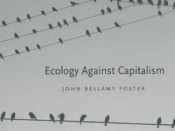“The Latin American Revolt: An Introduction“, Monthly Review vol. 59, no. 3 (July 2007), pp. 1-8. DOI: 10.14452/MR-059-03-2007-07_1
The revolt against U.S. hegemony in Latin America in the opening years of the twenty-first century constitutes nothing less than a new historical moment. Latin America, to quote Noam Chomsky, is “reasserting its independence” in an attempt to free itself from centuries of imperialist domination. The gravity of this threat to U.S. power is increasingly drawing the attention of Washington. Julia Sweig, Latin American program director at the Council on Foreign Relations, argues that the twenty-first century is likely to be known as the “Anti-American Century,” marking a growing intolerance of the “waning” U.S. empire. Outweighing even the resistance to the U.S. war machine in Iraq in this respect, Sweig suggests, is the political realignment to the left in Latin America, which, in destabilizing U.S. rule in the Americas, offers a “prophetic microcosm” of what can be expected worldwide.
Translations:
- Spanish translation in America Latina en Movimiento, Barcelona.
- Translated in Monthly Review, Turkish edition, no. 16 (Istanbul: Kalkedon, 2007).
- Bangla translation in Bangla Monthly Review, no. 4 (September-November 2007. Translated by Protiva Mondol.


